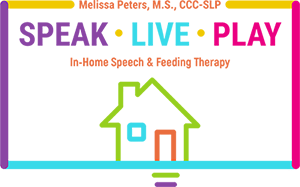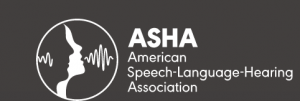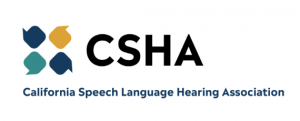Social Communication Disorder
When communicating, we learn to make decisions based on people around us, where we are, and the communication purpose. We learn how to decide early through direct teachings, such as when a parent tells you to always say please whenever you are asking for something. We also learn through experience where we notice when someone is interested in a subject you are referring to. Social communication is the ability to make such decisions. Our friends, family, and community teach us the unwritten rules of social communication.
Although there is no right or wrong way, we can adjust how or what to say something while following the communication rules. After knowing and using the communication rules, we hardly ever think about them. Unfortunately, some of us are born differently and may have trouble learning and using the rules. A social communication disorder is one typical problem that makes kids have difficulties learning and following language rules.
What is a social communication disorder?
Kids with social communication disorder usually have problems using language to interact. The kid can understand language and uses it in some contexts but may face difficulties communicating in a social situation. Often, the kids struggle to interpret other people’s gestures and words and cannot have conversations or use greetings. These kids find it hard to follow stories or understand the implied moral of the story, which is evident to other children of their age.
Also known as Social pragmatic communication disorder, social communication disorder (SCD) is a neurodevelopmental condition that occurs during our early development. However, the condition tends to manifest as the kid gets older since the difficulties with pragmatic language become easy to notice when the child enters into complex social setups.
Social (pragmatic) communication disorder symptoms and signs
When a child can understand some communication and language skills but cannot apply them in a social context, they may suffer from a social pragmatic communication disorder. The diagnostic and Statistical manual of mental disorders states that the criteria for social communication disorder include the following;
- Problems with social communication, such as sharing information or greeting people
- Difficulties adjusting communication for it to match the needs of the listener
- Challenges when following the rules of storytelling and conversation such as taking turns when making conversation, using nonverbal communication, and rephrasing to allow for easy understanding
- Problems interpreting what are not verbally stated metaphors, idioms, and other nonliteral language meanings.
- A kid with social community disorder tends to have trouble with both verbal and nonverbal communication skills, such as;
- Customizing the speech to fit different situations and audiences, for instance, knowing when and how to talk to their peers versus an adult, their parents, or someone they have just met.
- Responding appropriately to questions, for instance, they may have unexpected answers.
- Taking turns in having a conversation, for example, when or how to respond to others, staying on topic, and letting others speak
- Difficulty talking about how they feel about certain things
- Problems with a social greeting, such as saying hi, asking others how they are doing, or introducing themselves
- Understanding metaphors, humor, and puns
- Understanding verbal and nonverbal cues
Social Communication Disorder Causes
Medical experts are yet to understand the cause of social communication disorder. However, some research shows the possibility of genetic overlap between SCD and autism. The research shows that specific genes are at high risk of SCD. However, the research does not show that a specific combination of certain genes will inevitably cause social communication problems. The experts have also identified brain differences with this disorder. Unfortunately, the finding isn’t conclusive and often isolated, meaning that one study may find a structural change associated with the condition while another study will find a different one. Today, scientists do not clearly understand whether these brain differences are responsible for the disorder or other factors like the environmental effects that lead to the development of these brain differences.
Diagnosing Social Pragmatic Communication Disorder
The diagnosis of SCD mainly depends on the difficulty the patient is having when using verbal and nonverbal social communication skills. The skills include:
- Responding to others
- Staying on topic
- Take turns when playing or taking.
- Talking about their feeling and use of gestures such as pointing or waving
- Other considerations taken when considering the diagnosis includes:
- The ability of the kid to adjust speech to fit different situations or people, for example, lowering their voice in a library
- Making and keeping friends
- Asking questions that are relevant or responding with related ideas when making a conversation
- Using the right words for various purposes like making comments, greeting people, making a promise, and asking questions
Autism is characterized by difficulties with social communication, much like SCD. Nevertheless, limited and repetitive actions are additional markers of autism. Therefore, before a diagnosis of SCD is made, autism must be ruled out through an examination. Due to the numerous behaviors and symptoms that Autism and SCD share, the differential diagnosis is challenging. SCD can also coexist with other developmental problems such as attention-deficit/hyperactivity disorder, learning impairments, speech sound disorders, and language impairment.
Interventions for social communication disorder
Similar to any other disorder, early intervention is crucial when it comes to helping kids with social pragmatic communication disorders. The good news is that speech-language pathologists (SLPs) are well versed in this area and will help evaluate and come up with customized treatment for the social communication problem of your kid. The SLPs collaborate with parents and teachers to assist in developing the kid’s social communication skills at home and school.
Your primary pediatrician can help you in finding an experienced SLP to help assess and treat SCD. The expert will work with your kid to improve both the verbal and nonverbal aspects of social interaction and communication. For instance, if your kid does not use gestures in waving to say goodbye, raising an arm in class, or extending arms for you to pick them up.
For people who are non-verbal or barely talk, an SLP can also provide visual assistance and other types of alternative and augmentative communication. Some standard assistive communication devices include speech-generating computing, electronic tablets, or the use of basic things such as pointing to images on a whiteboard.
Many different locations are available for your kid to get SCD therapy. Schools, school districts, and medical institutions employ SLPs to deliver these services as a part of special education programs and early intervention. Several clinics and children’s hospitals also offer these social communication services. The therapist will work closely with your kid and give you tips on how to help them communicate better with others at school, at home, and in other situations.
What will therapy entail?
For more successful speech and language treatment, family engagement is crucial. Parents and guardians spend most of their time with their kids. When a kid has a social communication problem, the SLP will teach you how you can help your kid to practice social skills in real-life situations. The expert will also recommend involving other communication partners, which may include teachers, special educators, and counselors, in guiding your kid on how to improve their social communication. The therapy usually begins one-on-one with the therapist and progresses to teach the parents and other people such as teachers to help promote the skills in kids with these problems.
Strategies for Families
Various activities are available for you to do at home to encourage social communication skills. They are simple strategies that enable you to engage your kid at home. Teachers can also apply them in school to assist the kid in communicating better.
Take turns
Take part in simple turn-taking activities that depict the social interaction flow. Great activities to take part in include throwing a ball back and forth, rolling, clapping, etc. You can also repeat the sounds or words the kid makes. The goal is to start with simple turns between you and your kid and then include other people.
Reading and discussion
Read entertaining stories for the kid and discuss them. You can do this by asking open-ended questions to ensure that the kid understands. Asking questions such as “what do you think about what he did?” can help bring out the imagination and creativity in your kid.
Talk about the feelings
Talking about emotions is very easy when you use books and stories. Explain how you believe a character in a tale should be acting or feeling. Try applying this to actual circumstances by informally discussing how a friend or relative could be reacting and why.
Next, ask your kid to attempt to guess the next event in a story. Give him hints to help him predict the outcome of a story. Once an event occurs, look back and examine the hints that pointed in that direction. Consider a photo of foodstuff or milk spills on the floor, for instance, and speculate as to what may have caused it.
Clue into pop culture
Teach your kid to well-known, developmentally appropriate public figures and shows so that he may participate in discussions about them with peers.
Plan structured play dates. Begin with just one friend at a time and have a planned activity with a time limit – say, 60 to 90 minutes to start.
Utilize visual aids
Like many autistic children, many kids with SCD process information visually. Your kid may benefit significantly from visual assistance when it comes to understanding schedules and expectations. For example, to signal to your kid that it is their turn to speak, you may use a visual cue like an image of a kid speaking or an open mouth. Doing this will teach him when to reply or respond, as well as how to minimize unwanted interruptions.
Professional help is crucial
Professional early intervention is crucial for kids with a social pragmatic communication disorder to help them develop their social interaction skills. Do not expect them to get the skill when they spend time with other kids. Some experts argue that exposing the kid to a social communication problem in a socially demanding environment without the proper support can lead to isolation and tension.
Similarly, with the proper support, participating in social activities will provide a wonderful learning experience for the kid. Parents/ guardians and their kids can benefit from the methods of a therapist who specializes in social communication intervention to reinforce the new abilities your kid is picking up in therapy, and we strongly advise you to collaborate closely with his speech-language pathologists.
Difference between Social Communication Disorder and Autism
Autism is characterized by difficulties with social communication, much like SCD. The main distinction is that individuals with autism have limited interests and repetitive behaviors. These behaviors include, for instance, lining up toys instead of utilizing them like other kids do, being very angry when routines change or are interrupted, and displaying incredibly intense concentration on a single subject. Additionally, ASD children frequently exhibit hyper- or hypo-sensitivity to noises, touch, and textures. Kids with SCD, on the other hand, struggle with social communication. As such, autism should be ruled out before diagnosing SCD.
Both autism spectrum disorder (ASD) and social pragmatic communication disorder are not diagnosed together. If your kid is given an ASD diagnosis rather than a lesser SCD diagnosis, mainly if they are performing well in domains other than social communication, you could feel upset. To prevent an ASD diagnosis, parents fail to mention the repetitive or restricting behaviors their kid appears to have “outgrown.” It is vital to disclose all the signs and symptoms, even if they only appear once. An appropriate autism diagnosis can make your kid qualified for more assistance and care accessible to someone with SCD.



